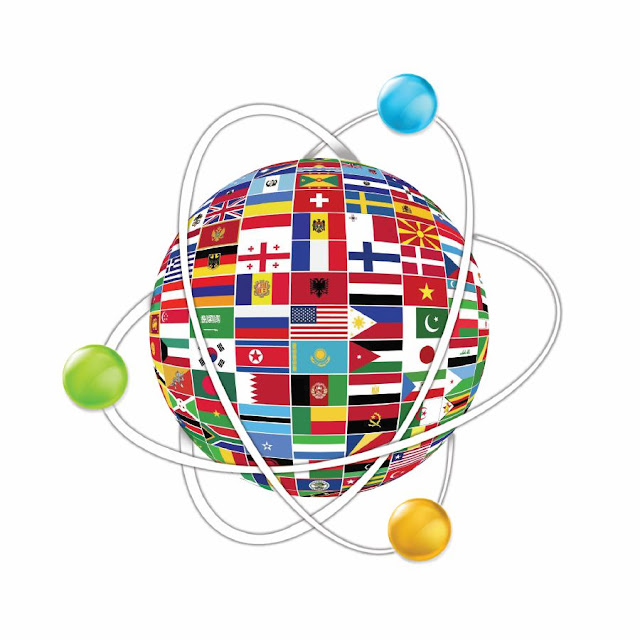“The soft power of science has the potential to reshape global diplomacy” – Ahmed Zewail
In a swiftly changing world where new global challenges influence every country, science is not only one of the vibrant forces in socioeconomic progress but also, promoting globalization roles that will exaggerate in the future. Science is considered as a neutral area and has no nationality. In this respect, it is comparatively easier to build up international cooperation through science rather than political or military relations. Moreover, science can play a bridging role between the nations through their scientists which have fragile political relations. It means the deployment of science as a tool of diplomacy – Science in Diplomacy, for the sake of developing better relations among nations.
Science Diplomacy (SciDip) is a reflection of the significance that each country and government grants to science and technology (S&T) in designing and implementing its foreign policy. Up till now, the most developed countries have adopted actions aimed at raising the profile of S&T in decision-making on international affairs, strengthening their S&T activities in foreign policy. The USA, United Kingdom, Japan and New Zealand have created the position of Scientific Advisor in their respective Foreign Ministries; the United Kingdom and Switzerland have integrated their Scientific Councils into their Industrial Councils to better recruit world-class scientists and carry out collaborations, whilst promoting the internationalization of innovation. International scientific and technological cooperation has also become a leading aspect of US foreign policy. The Department of State (DoS) has a Science and Technology Adviser to the Secretary of State, making the USA one of few countries in the world with such a government position. The American Association for the Advancement of Science (AAAS), in coordination with the DoS, runs an ambitious grant program for training scientists in the areas of S&T policy within the US government. The DoS scientific diplomacy strategy focuses on promoting overall participation in areas that involve S&T.
Regarding SciDip, the Japanese government established its main policy lines in a document by a group of experts in the field and that document specifically establishes 15 lines of action for utilization of science in diplomacy. For at least the last decade, Germany invests a great deal of effort in international cooperation in the field of education and science through its Ministry of Foreign Affairs. The German Ministry of Education and Science has its own office for the internationalization of science that receives expert advice. For instance, Germany has been building “Science Houses” in other countries, devoted exclusively to disseminating German technology, innovation and science.
Science in diplomacy is, today more important than ever for:
- Contributing to resolving the most pressing challenges of globalization, such as climate change, food security, pandemics, natural disasters, nuclear proliferation and cyber-security etc.
- Achieving long-term sustainable development, in keeping with the Sustainable Development Goals (SDGs) of the 2030 Agenda.
- Promoting collaboration and harmony in international relations since scientific cooperation can serve as a communication channel when diplomatic relations is inactive.
Geographically, Pakistan is one of the most imperative states but, we could not get its maximum geopolitical benefit. Pakistan needs not only to revitalize bilateral and multilateral relations with neighbors and regional countries but also, world-over for peace, progress and prosperity of our people and also to play the decisive role in the region according to current regional and global scenario. As Pakistan’s new government has formed, now there is a need to revive foreign policy beyond traditional way to achieve our national objective with the mutual consent of all stakeholders, which must be in Pakistan’s best interest and that will benefit the people on the top. Government should make strenuous efforts for getting regional cooperation for peace, progress and mutual development; enhance strong diplomatic relations with primary focus on neighbors by resolving all disputes with regional countries. Unless region is peaceful, our efforts for growth and development will not be succeeded. In this regard, the Government of Pakistan (GoP) and foreign policy planners must utilize science in diplomacy as a new dimension for foreign policy of Pakistan and perform the following roles:
- Devise the S&T based foreign policy and clear position to science and technology diplomacy (STD) as the new axis. Produce policy papers on subject arising in SciDip, science based foreign policy and strengthen diplomatic proficiency.
- Utilize S&T personnel in diplomatic activities/missions and scientific knowledge in formulating and implementing diplomatic policy and highlight the connection between science and socioeconomic development.
- Develop and implement policies that will strengthen Pakistan science and engineering through international cooperation and monitor S&T development abroad to understand the S&T strategies of other nations for diplomatic agendas and regional groupings.
- Set a diplomatic agenda based on scientific evidence and advice, and lead international efforts and proactively convey the message that Pakistan will take leadership role for the solution of global challenges by using S&T to achieve desirable international circumstances.
- Continue its efforts to strengthen good governance, with emphasis on merit based institutional development and the rule of law, and exceptionally eliminate corruption and nepotism from society as-a-whole.



No comments:
Post a Comment